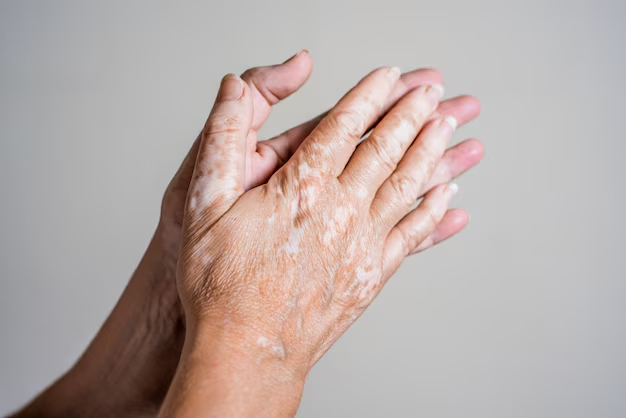Unlocking the Mystery of Eczema in Adults: Causes and Influences
Eczema, an often aggravating skin condition, affects millions of adults around the world, prompting questions about its origins and triggers. Although eczema can be a stubborn adversary, understanding its causes can empower individuals to manage it more effectively. This article delves into what causes eczema in adults, examining the factors that contribute to flare-ups and suggesting practical tips for dealing with this persistent condition.
Understanding Eczema: More Than Just a Rash
Before exploring the nuances that lead to eczema, it’s crucial to understand what eczema actually is. Also known as atopic dermatitis, eczema is a chronic skin condition characterized by dry, itchy, and inflamed patches of skin. Although it is commonly seen in children, many adults also live with eczema, experiencing varying degrees of severity. The condition can have a significant impact on a person's quality of life, sometimes leading to sleep disturbances, depression, and anxiety.
The Role of Genetics: A Predisposition
One of the most pivotal elements in the development of eczema is genetics. If you have a family history of eczema or other atopic conditions like hay fever and asthma, your likelihood of developing eczema increases. Research suggests that genetic mutations affecting skin barrier function play a crucial part in eczema's development. Specifically, mutations in the FLG (filaggrin) gene can jeopardize the skin's ability to retain moisture, resulting in the dryness and irritation synonymous with eczema.
Environmental Factors: Household and Beyond
While genetics set the stage, environmental factors often serve as catalysts for eczema flare-ups. The skin of a person with eczema is particularly sensitive to a range of external stimuli, making them susceptible to varying triggers.
Household Irritants
The modern home is filled with potential eczema irritants. Household cleaning products, soaps, shampoos, and detergents often contain harsh chemicals that can irritate sensitive skin, leading to redness and itching. Opting for products free of dyes and fragrances can minimize exposure to irritants.
Climate and Weather Conditions
Environmental conditions such as temperature and humidity also play a significant role. Eczema symptoms can worsen during extreme weather conditions; cold temperatures tend to dry out the skin, while hot, humid weather can increase sweating, leading to irritation.
Air Pollution
Increasing levels of air pollution have been linked to eczema flare-ups. Polluted air contains allergens and irritants that can exacerbate skin problems, particularly in urban environments.
Immune System and Allergic Reactions: The Inside Story
A malfunctioning immune system is another cornerstone in understanding eczema. For reasons not entirely understood, the immune systems of individuals with eczema overreact to minor irritants or allergens, leading to skin inflammation. This reaction is often inflammatory and can cause the uncomfortable itching and redness that's typical of an eczema flare.
Food Allergies and Sensitivities
While not every person with eczema has food allergies, those with severe eczema may see flare-ups linked to certain foods. Common allergens include eggs, nuts, milk, and soy. Although uncommon, elimination diets may be suggested by healthcare professionals to identify specific triggers.
Stress as a Trigger
Stress is known to play a significant role in exacerbating eczema. When stressed, the body releases hormones that can negatively impact the skin. Mindfulness, yoga, and other stress-reduction techniques may help manage eczema symptoms in this context.
Lifestyle Choices: Daily Decisions and Their Impact
Lifestyle choices can either help or hinder efforts to manage eczema. Factors such as diet, exercise, and personal habits can interplay with other eczema triggers to influence outbreaks.
The Impact of Diet
Although diet is not a primary cause of eczema, nutritional choices can have an impact on overall health and wellbeing. Consuming a balanced diet rich in anti-inflammatory foods, like fruits, vegetables, and omega-3 fatty acids, can support a healthy immune system and may assist in reducing flare-ups.
The Importance of Skin Care Routine
A daily skin-care routine designed to maintain moisture and protect the skin barrier is essential for managing eczema. Moisturizing regularly with emollients, especially after bathing, can lock in moisture and prevent dryness.
Caution with Clothing Choices
Wearing non-irritating fabrics such as cotton, and avoiding rough materials like wool, can minimize skin irritation. Opt for loose-fitting clothes to reduce friction and allow the skin to breathe.
Seeking Professional Guidance: Knowing When to Get Help
While lifestyle changes and home remedies can alleviate some symptoms, professional medical guidance can provide tailored solutions and interventions.
Dermatological Consultation
If eczema symptoms become unmanageable or lead to secondary infections, it's time to consult a dermatologist. They can assess the condition and potentially offer treatments ranging from topical corticosteroids to newer biologic agents that target the immune response.
Allergy Testing
In some cases, undergoing allergy testing can provide insight into any undiagnosed allergies exacerbating eczema symptoms. This information can guide better lifestyle choices that mitigate flare-ups.
Concluding Insights: Embracing a Holistic Management Approach
Eczema can be a perplexing condition, with numerous factors contributing to its onset and persistence. While there's currently no cure, understanding the genetic, environmental, and lifestyle factors that trigger eczema can empower those affected to manage their symptoms effectively.
Embracing a holistic approach that encompasses skin care, lifestyle modifications, and medical guidance can pave the way for improved quality of life. By recognizing the intricate web of causes, individuals with eczema can better navigate their personal triggers and minimize the impact of this condition on their daily lives.
🌟 Eczema Management at a Glance
- Understand Triggers: Genetics, environment, and stress are key 🎯
- Choose Skin-Friendly Products: Opt for fragrance-free and gentle 🧴
- Monitor Diets: Identify potential food triggers 🍎🍞
- Stay Moisturized: Regular emollient use is essential 💧
- Adapt Clothing: Wear breathable fabrics 👕
- Manage Stress: Practice relaxation techniques 🧘♂️
- Seek Professional Help: Consult a dermatologist for severe cases 👩⚕️

